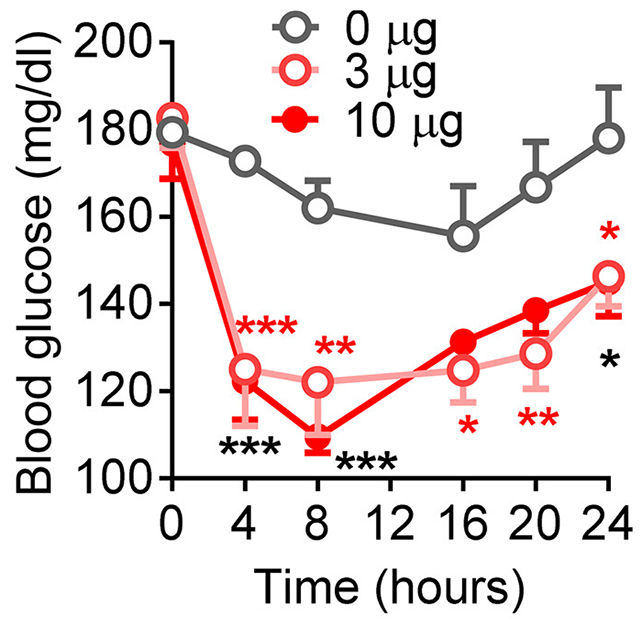Metformin has been prescribed to people with type 2 diabetes to manage blood sugar for more than 60 years, but scientists haven’t been exactly sure how it works. A new study suggests it works directly in the brain, which could lead to new types of treatment.
The study, carried out by researchers from the Baylor College of Medicine in the US, identifies a brain pathway that the drug seems to work through, in addition to the effects it has on biological processes in other areas of the body.
“It’s been widely accepted that metformin lowers blood glucose primarily by reducing glucose output in the liver,” says Makoto Fukuda, a pathophysiologist at Baylor. “Other studies have found that it acts through the gut.”
Related: 10 Key Reasons Dementia Is Linked With Diabetes
“We looked into the brain as it is widely recognized as a key regulator of whole-body glucose metabolism. We investigated whether and how the brain contributes to the anti-diabetic effects of metformin.”
Previous work by some of the same researchers had identified a protein in the brain called Rap1 as having an impact on glucose metabolism, particularly in a part of the brain called the ventromedial hypothalamus or (VMH).

In the new study, tests on mice showed metformin traveling to the VMH, where it helps tackle type 2 diabetes by essentially turning off Rap1.
When the researchers bred mice without Rap1, metformin then had no impact on a diabetes-like condition – even though other drugs did. It’s strong evidence that metformin works in the brain, through a different mechanism than other drugs.
The team was also able to take a close look at the specific neurons metformin was changing activity in. Further down the line, that could lead to more targeted treatments that take aim at these neurons specifically.
“We also investigated which cells in the VMH were involved in mediating metformin’s effects,” says Fukuda.
“We found that SF1 neurons are activated when metformin is introduced into the brain, suggesting they’re directly involved in the drug’s action.”
Metformin is safe, long-lasting, and relatively affordable. It works by reducing the glucose produced by the liver and increasing how efficiently the body uses insulin, helping to manage the symptoms of type 2 diabetes.
Now we know it very probably works through the brain, as well as the liver and the gut. Clearly, this needs to be shown in human studies as well, but once that’s established, we might be able to find ways to boost metformin’s effects and make it more potent.
Related: Caffeine in Your Blood May Affect Body Fat And Diabetes Risk, Study Shows
This also ties into other interesting studies that have found the same drug can slow brain aging and improve lifespan. With a better understanding of how metformin works, we may see it used for a broader range of purposes in the future.
“This discovery changes how we think about metformin,” says Fukuda. “It’s not just working in the liver or the gut, it’s also acting in the brain.”
“We found that while the liver and intestines need high concentrations of the drug to respond, the brain reacts to much lower levels.”
The research has been published in Science Advances.
Source link


